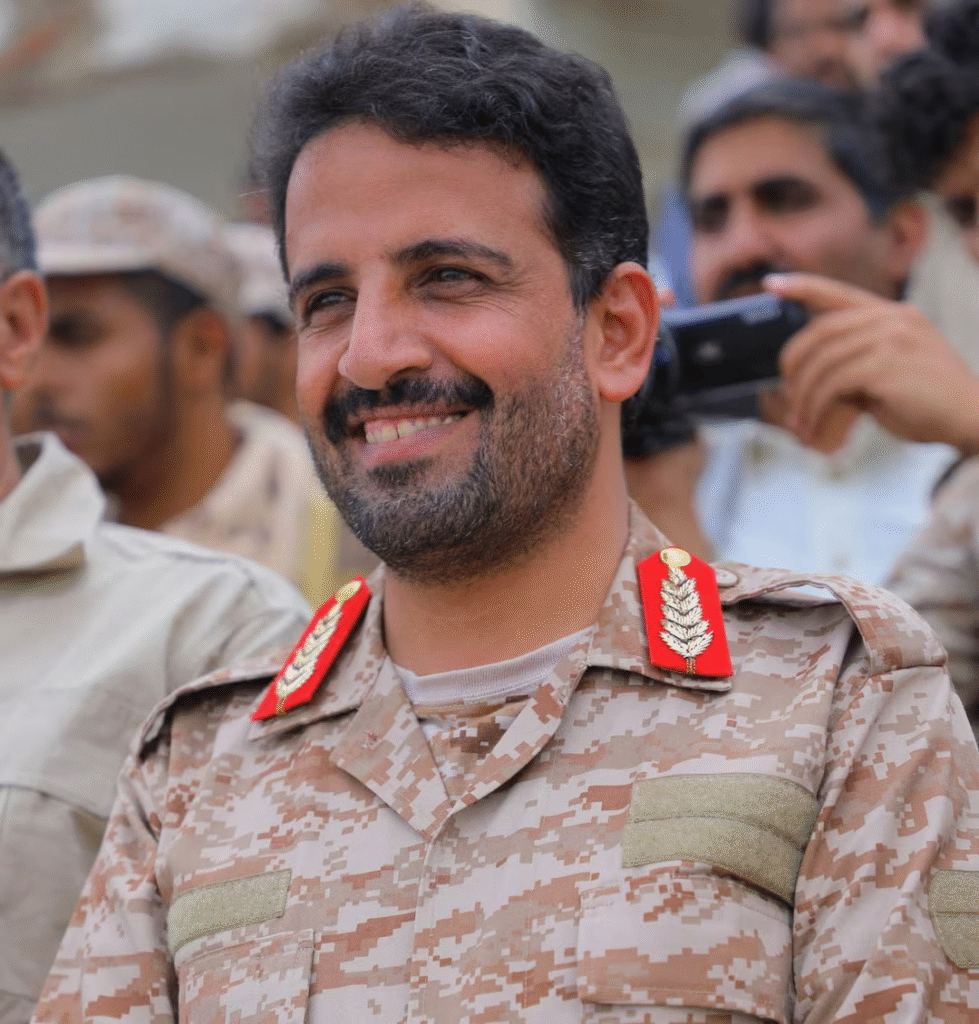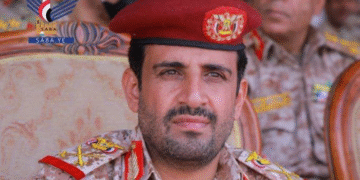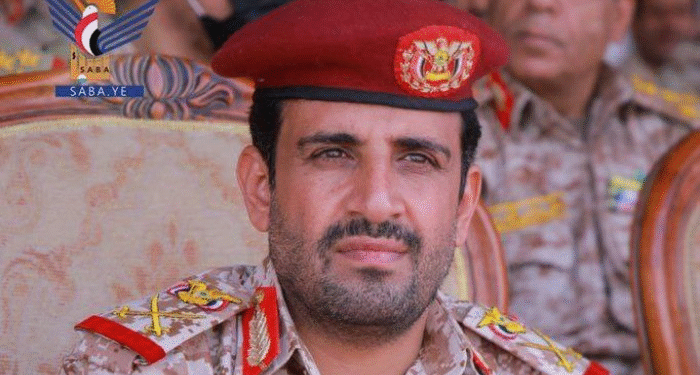Senior Houthi leader succumbs to injuries following an Israeli airstrike, marking a significant development in Middle East tensions. Full details inside
Yemen’s Houthi movement has confirmed that their Chief of Staff, Major General Muhammad Abdul Karim al‑Ghamari, died from injuries sustained in an Israeli airstrike earlier this year. This marks a significant blow to the leadership of the Iran-backed group, and adds a new escalation layer in the ongoing conflict dynamics between the Houthis and Israel.
According to both Houthi statements and statements from Israeli officials, al‑Ghamari had been wounded in a targeted strike in August and succumbed to those injuries in recent days.
He was reportedly killed along with his 13‑year-old son and some colleagues, though the group has not disclosed full details about the timing and exact circumstances of his passing.
Israeli Defense Minister Israel Katz confirmed that al‑Ghamari died of wounds sustained from the airstrike, referring to the strike as “the strike of the firstborn” and asserting that the slain commander “joined his fellow members … in the depths of hell.”
In Houthi media, the announcement called his death an “honourable martyrdom” during his “jihadist work,” and warned that Israel would receive “deterrent punishment” for its actions.
In the wake of this, the Houthis have named Major General Yusuf Hassan al‑Madani—himself under U.S. sanctions—as his successor.
Who Was al‑Ghamari & His Role

Major General Muhammad al‑Ghamari was widely viewed as one of the top military leaders within the Houthi movement. As Chief of Staff, he oversaw Houthi military operations that included missile launches, drone attacks, and strategic coordination against regional adversaries.
The United Nations had imposed sanctions on him in recognition of his role in coordinating military operations that threatened regional stability, including cross‑border strikes against Saudi Arabia and infrastructure destruction inside Yemen.
In U.S. Treasury documents, he was described as instrumental in orchestrating Houthi missile and drone attacks that impacted civilian infrastructure in both Yemen and its neighbors.
He was considered the highest-ranking Houthi official ever killed by an Israeli airstrike to date.
The Strike, Timeline & Ambiguities

The Strike
Israel is reported to have carried out a precision airstrike targeting Houthi leadership in late August, including al‑Ghamari, Houthi Prime Minister Ahmed al‑Rahawi, and other senior personnel.
The missile barrage also hit Houthi government facilities, including the general staff headquarters in Sanaa, according to Houthi sources and Israeli statements.
Although the Houthi movement recognized the death only in October, Israeli leaders have claimed that al‑Ghamari’s death is attributable to wounds from the August strike.
Timeline & Uncertainties
- The precise date of al‑Ghamari’s death remains uncertain. While the initial strike was in August, the confirmation from the Houthis came only in October.
- Israel’s Katz stated that al‑Ghamari died of wounds, not in the immediate strike—implying he may have survived for some period before passing.
- Conflicting reports exist about whether the wound was from the same strike that killed the Houthi prime minister or a separate earlier attack.
- The identities and fates of “companions” killed alongside him—including his son—are not fully confirmed in public statements.
Given the opacity around Houthi internal communications and the time lag in confirmation, many details remain murky.
Strategic & Regional Significance

Blow to Houthi Command Structure
Al‑Ghamari’s death represents one of the most significant decapitation strikes against the Houthi movement’s upper echelon. Losing a commander with deep operational knowledge and strategic leverage will inevitably strain their command continuity and coordination across fronts.
With Yusuf al‑Madani stepping in, the group now needs to reorganize its military hierarchy at a time of ongoing conflict with Israel.
Israel’s Tactical Projection
For Israel, this is a demonstration of reach—targeting leaders deep within Yemen. It underlines the strategic priority Israel places on degrading the Houthi threat, especially in context of Houthi missile and drone operations directed at Israel and maritime shipping routes.
It also signals Israeli intelligence and capabilities are active beyond immediate frontline theaters—a message to Iran‑aligned groups.
Impact on the Red Sea & Shipping Risks
The Houthis have, in recent years, launched attacks on ships in the Red Sea as part of solidarity toward Palestinians and to exert pressure on Israel. The elimination of al‑Ghamari may disrupt Houthi planning or degrade the risk—but equally could provoke retaliatory escalation in maritime zones.
Monitoring shipping lanes, insurance risk, and maritime security will be crucial in the coming weeks.
Diplomacy, Ceasefires & Escalation Risks
This development comes amid a current ceasefire between Israel and Hamas (from October 10), raising questions about whether conflict may flare again involving more players.
Houthi statements already signal vows of retaliation, which may pull Yemen deeper into broader regional confrontation.
Reactions & Messaging
Israel
Defense Minister Katz’s rhetoric was forceful. He framed the strike as a success in Israel’s larger war against threats and reiterated that Israel would continue operations against leaders who target its citizens.
He also referred to al‑Ghamari’s fate in strong moralistic lines, linking his death to the broader Israeli campaign narrative.
The Houthis
In their official release, the group praised al‑Ghamari’s dedication, affirmed his martyrdom in “honourable jihad work,” and threatened retaliation. also affirmed that the conflict with Israel is ongoing and hinted that no strike would deter their resolve.
Analysts & Regional Observers
Middle East analysts are treating this as one of the most consequential strikes in years against the Houthi leadership. Some view it as a turning point that may force recalibration within the Houthi structure.
Others caution that while leadership losses matter, the decentralised nature of Houthi operations may blunt the overall impact, especially if the group quickly reorganizes.
What Comes Next: Prognosis & Watchpoints
- Houthi Response & Retaliation
Expect statements, missile or drone response, possibly targeting Israel or maritime routes. The Houthis may act to demonstrate that such attacks will not diminish their operations. - Operational Disruption
The new Chief of Staff must assert control. There may be temporary breakdowns in planning, delays in coordinated strikes, or reallocation of command. - Israeli Follow-up Strikes
Israel may use this momentum to target additional high-value individuals or facilities associated with the Houthi movement, testing their strike doctrine and intelligence depth. - Maritime & Shipping Security
Shipping through Red Sea lanes may face periodic threat upticks. Naval forces, insurance underwriters, and maritime traffic will need to remain alert. - Diplomatic & Ceasefire Tensions
The ceasefire between Israel and Hamas could be jeopardized if escalation spills over or if Israel feels emboldened to further extend its military campaign. - External Actors & Proxy Dynamics
Iran, Saudi Arabia, and Gulf states will watch closely. Proxy influence—via funding, arms, training—may intensify, especially if the Houthis feel pressured. - Humanitarian Fallout
Yemen remains already devastated. Any intensification of conflict risks greater civilian harm, displacement, and disruption of aid operations.
Conclusion
The death of Major General Muhammad al‑Ghamari marks a pivotal moment in the Israel‑Houthi conflict dynamic. With one of the most capable and senior Houthi commanders removed, the balance of deterrence, command, and retaliation may shift—though not without significant risk.
This event underscores the expanding theatre of conflict beyond Gaza and Lebanon, as Israel projects power into Yemen to confront allied and proxy threats. The ripple effects—military, political, and humanitarian—could reshape the conflict’s trajectory in the region.
As new leadership steps in, retaliatory posturing begins, and strategic calculations evolve, the coming days will be closely watched by governments, analysts, and observers across the Middle East and the world.
Also Read : CBI arrests Punjab DIG on graft charges; ₹5 crore cash, Mercedes, luxury watches seized















 Categories
Categories









